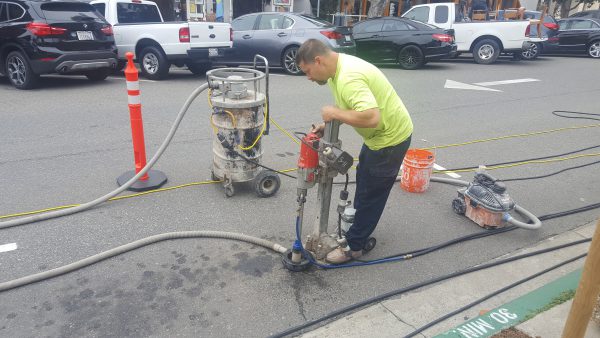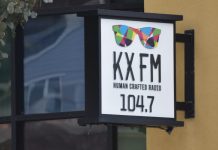
By Daniel Langhorne, Special to the Independent
Laguna Beach started installing sensors Monday to launch its new smart parking guidance system, but the $1.61 million contract with Frogparking is mired in complaints from two competitors who claim the bidding process was unfair.
St. Louis-based Fyber claims that the city initially allowed bidders a week to respond during the winter holidays, which prevented its representatives from asking city staffers questions so they could submit a more refined bid, according to a letter from the company’s attorneys. City records showed the request for proposals was issued Dec. 31 and subsequently pushed back to Jan. 31.
“We’re still just trying to figure out what is going on in Laguna Beach,” Fyber CEO Bob Glatz said. “We offered to do the pilot for free to give the city a free look at what we can do.”
The City Council adopted a smart parking guidance system in April to offer residents and visitors a smartphone app that will direct them to open spaces in public parking lots and on the street in downtown Laguna Beach. City staffers believe that this will alleviate the congestion caused by motorists searching for an open parking space.
Laguna Beach hired a consultant, Dixon Resources Unlimited, who specializes in parking technology and parking management services, to draft the project’s RFP and later grade the bids for the project. Dixon and city staffers later disqualified Fyber’s bid as “non-responsive” because it had no mobility solution, lacked sufficient information on data management, and lacked sufficient pricing detail, said Shohreh Dupuis, Assistant City Manager and Director of Public Works.
“The city believes that the above process was thorough, reasonable, and conducted fairly and objectively,” Dupuis said. “The process enabled the City Council to select the best combination of software, service, equipment, reliability, and warranties for the desired system for the benefit of the city and its residents and visitors.”
At the beginning of the process, city staffers determined the smart parking guidance system was primarily a professional service and would require special “qualitative and subjective” decisions about technology. This released Laguna Beach from having to award its contract to the lowest bid from a responsible bidder, which is typically required of public works projects and other construction work.
If that were the case, Indect USA would have been the lower bidder with a total bid amount of $1,038,059. Indect CEO Dale Fowler said Thursday that his company initially protested what it believes was an unfair bidding process because it did not have sufficient time to obtain answers to its questions from city staffers and incorporate their guidance into its bid. Indect has now moved on from the project, Fowler said.
Besides the small timeframe offered to bidders competing for Laguna Beach’s smart parking guidance system, Fyber claimed Deputy Director of Public Works Paula Faust offered sporadic updates on the RFP process and a new timeline for awarding the contract.
Glatz said he has filed a public records request with the city for more information on how the city and its consultant graded the bids and any correspondence with New Zealand-based Frogparking.
“I feel strongly that we have the better answer by a mile,” Glatz said. “There’s something weird there.”
Glatz thinks Laguna Beach residents should be particularly concerned that Frogparking doesn’t have the high-level cybersecurity systems employed by its competitors.
“I would think the city would worry about using a system that is built overseas and maybe not encrypted at all,” he said. “Wouldn’t you want to make sure you have a certified encrypted system?”
In addition to its contract with Frogparking, the City Council also agreed to spend $55,000 to hire a marketing firm to educate residents and visitors about the smartphone app. That contract will have to come back to Council members for approval.
Frogparking expects that it will be able to install sensors on 75 percent of the downtown parking spaces by the start of this summer, city staffers said.




